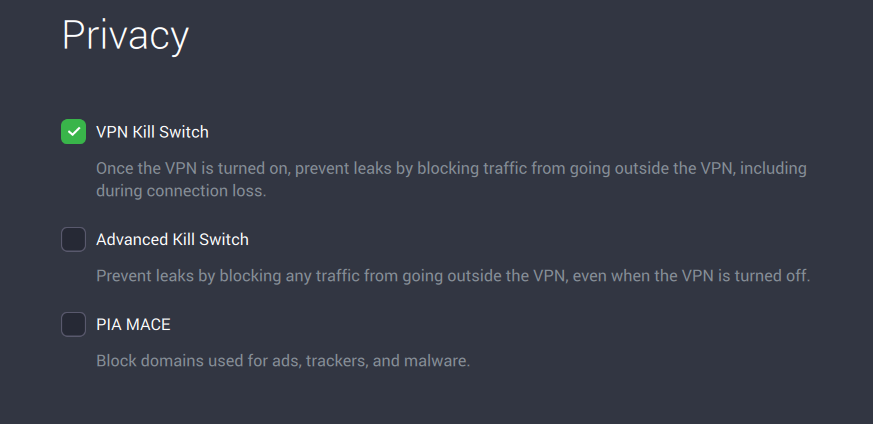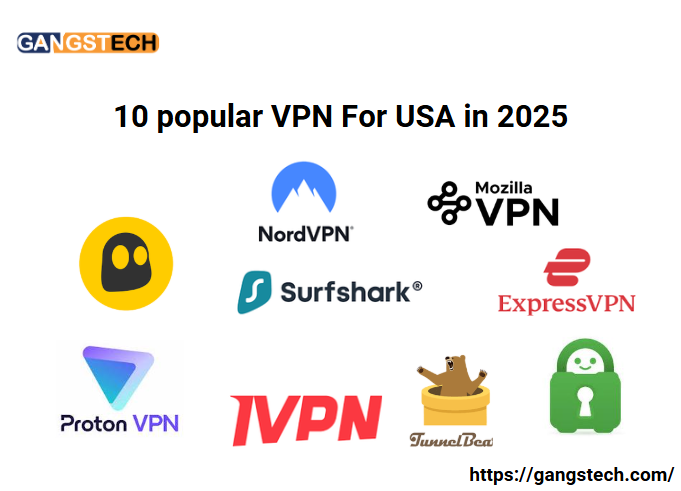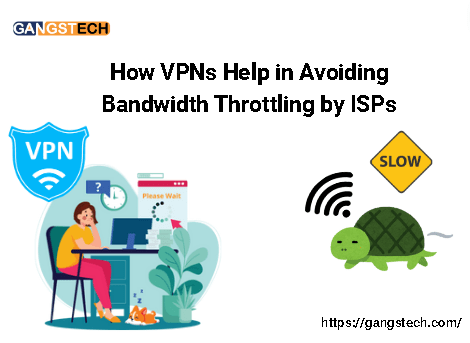In today’s digital age, online privacy and security are more important than ever. Whether you want to protect your data, bypass geo-restrictions, or enjoy secure browsing, a Virtual Private Network is a must-have tool. But with so many options available, how do you choose the best one? Here are 7 key points to consider when selecting the best VPN for your needs.
According to the Statista 31% of internet users worldwide use a virtual private network regularly.
- Security and Privacy Features
- Server Locations and Availability
- Connection Speed
- Device Compatibility
- Ease of Use
- Pricing and Plans
- Ability to Bypass Geo-Restrictions and Censorship
1. Security and Privacy Features
Security and privacy features are designed to protect your online data and maintain your anonymity while using the internet. when choosing the best VPN consider the security features including
- AES-256 Encryption: This military-grade encryption standard ensures that your data is secure and unreadable to third parties.
- No-Logs Policy: A VPN with a no-logs policy does not track or store your online activities.
- Kill Switch: This feature automatically disconnects your internet if the VPN connection drops.
- Secure Protocols: Protocols like OpenVPN, WireGuard, and IKEv2 offer robust security and reliable connections.
- DNS and IP Leak Protection: Prevents your real IP address or DNS queries from being exposed.

These features work together to safeguard your sensitive information, such as passwords, banking details, and browsing history, from hackers.
2. Server Locations and Availability
Server locations and availability are crucial factors to consider when selecting the best VPN. A server network determines the geographical areas you can connect to and influences connection speed and reliability.
Why do Server Locations Matter?
The more widespread the server network, the easier it is to access geo-restricted content from different countries. A variety of server locations allows users to connect to servers closer to their physical location. they improve speed and reduce latency.
Impact of Distance on Connection
When the server is far from your location, data packets take longer to travel, increasing latency and slowing down your connection. Distant servers might experience more congestion. They are lead to slower speeds.
According to the Statista , 68% of users opt for paid services to ensure better speed and privacy .
3. Connection Speed
Connection speed is a vital factor when using a Best VPN because it directly affects your online experience. VPNs can sometimes slow down your internet speed due to encryption. To avoid this, choose a provider that offers
- High-speed connections allow you to stream videos in HD or 4K without buffering issues.
- Whether downloading large files or software updates, a fast server ensures minimal wait times.
- Gamers require low latency and high-speed connections to avoid lag.
- For remote workers, a fast connection ensures seamless video conferencing, quick file transfers, and uninterrupted access to online resources.
- High-quality virtual private networks with less crowded servers tend to offer better speeds.
- Different protocols have varying levels of encryption and overhead. WireGuard is generally considered the fastest, followed by OpenVPN and IKEv2.
- The farther you are from the server, the higher the latency (delay).
- A slower base connection will magnify the impact of Virtual private network overhead.
- Stronger encryption provides better security but can also impact speed.
4. Device Compatibility
Device compatibility is a key factor when choosing the best VPN because it determines how effectively it can be used across all your devices. Choosing a Virtual private network with broad device compatibility ensures you’re covered no matter what devices you use. it is a more versatile and practical option for your needs. Ensure the VPN is compatible with all the devices you use.
- Major operating systems like Windows, macOS, Android, and iOS.
- Browser extensions for Chrome, Firefox, or Edge.
- Simultaneous connections on multiple devices under one subscription.
Importance of Device Compatibility
- Multi-Platform Support
- Ease of Switching Device
- Simultaneous Connections
- Compatibility with Routers
- Support for Smart TVs and Consoles
- App Usability
5. Ease of Use
Ease of use is an essential factor when selecting the Best VPN because it directly influences your ability to utilize the service effectively and without frustration. A user-friendly interface makes managing your VPN simple.
Importance of Ease of Use
- A user-friendly VPN simplifies the installation and configuration process.
- VPNs with clear, easy-to-navigate interfaces enable users to connect quickly and adjust settings without confusion.
- An easy-to-use VPN saves time by reducing the learning curve.
- VPNs with straightforward customer support options, like live chat or comprehensive guides, make troubleshooting easier.
Choosing the best VPN with a focus on ease of use ensures that users can enjoy a secure, hassle-free online experience, regardless of their technical expertise.
You Also Like “14 Difference Between Proxy and VPN“
6. Pricing and Plans
One of the most important decisions is whether to go with a free or paid one. Free can be tempting, but they often come with limitations, such as restricted bandwidth, fewer servers, and even security risks. Some pricing can vary widely. Evaluate your budget and compare features before subscribing.
- Many providers offer discounts for long-term plans.
- Free VPNs often come with limitations like slower speeds or fewer servers.
- Look for a provider offering a money-back guarantee to try the service risk-free.
Investing in the best VPN is worth it for enhanced security and performance.
7. Ability to Bypass Geo-Restrictions and Censorship
If accessing blocked content is important to you, ensure the VPN can bypass geo-restrictions and censorship. Features to consider include
- Compatibility with popular streaming platforms like Netflix, Hulu, or Disney+.
- Obfuscated servers for bypassing censorship in countries with strict internet regulations.
- DNS leak protection to maintain anonymity.
This is especially useful for travellers, expats, or anyone wanting unrestricted internet access.
You are in a country with strict internet censorship, and you need to access social media and news websites that are blocked. You are unable to access censored content, which limits your ability to stay informed and communicate freely.
Why do you need the best VPN?
1. Public Wi-Fi Security
You are at a coffee shop using public Wi-Fi to check your email and bank account. Public Wi-Fi networks are often unsecured, making it easy for hackers to intercept your data. Personal information like login credentials and financial details can be stolen.
Tips : it's wise to avoid conducting highly sensitive transactions on public Wi-Fi whenever possible.
Public Wi-Fi networks are convenient but can be risky because they often lack robust security measures. Using a Virtual Private Network can greatly enhance your security on public Wi-Fi.
Data transmitted over public Wi-Fi can be intercepted by attackers using simple tools. virtual private network encrypts all data between your device and the server. Your real IP address is exposed without a virtual private network, which can be used by malicious actors to track your online activities or launch attacks against your device.
The virtual private network hides your real IP address and replaces it with the IP address of the fake server. If you’re accessing sensitive information (like banking or email) over public Wi-Fi, that data can be vulnerable to interception. The virtual private network ensures that your data is securely transmitted, even if the Wi-Fi network itself is compromised.
According to the PCMag ,59% of users choose a best vpn based on its connection speed.
Best VPN Providers with Strong Security and Privacy Features
ExpressVPN
- Encryption: AES-256
- No-Logs Policy: Verified no-logs policy
- Kill Switch: Yes
- DNS Leak Protection: Yes
- Multi-Hop: No
- Obfuscation: Yes
- Split Tunneling: Yes
CyberGhost
- Encryption: AES-256
- No-Logs Policy: Verified no-logs policy
- Kill Switch: Yes
- DNS Leak Protection: Yes
- Multi-Hop: No
- Obfuscation: Yes
- Split Tunneling: Yes (Android)
NordVPN
- Encryption: AES-256
- No-Logs Policy: Verified no-logs policy
- Kill Switch: Yes
- DNS Leak Protection: Yes
- Multi-Hop: Yes (Double VPN)
- Obfuscation: Yes
- Split Tunneling: Yes (Windows, Android)
ProtonVPN
- Encryption: AES-256
- No-Logs Policy: Verified no-logs policy
- Kill Switch: Yes
- DNS Leak Protection: Yes
- Multi-Hop: Yes (Secure Core)
- Obfuscation: Yes (VPN stealth)
- Split Tunneling: Yes
Conclusion
Choosing the best VPN is a personal process that requires careful consideration of various factors. The best VPN for you is the one that fits your specific needs and offers peace of mind while browsing the internet.
You Also Like “11 powerful Youtube SEO Tools”
Faqs
What is the difference between VPN protocols like OpenVPN, IKEv2, and WireGuard?
OpenVPN: This is a Reliable and widely used for speed and security.
IKEv2/IPsec: This is Faster for mobile devices.
WireGuard: A newer protocol that offers superior speed and security with less code.
How does a VPN protect against DNS leaks?
A VPN (Virtual Private Network) protects against DNS leaks by routing both your internet traffic and DNS (Domain Name System) queries through its secure, encrypted tunnel.
What is a kill switch, and why is it important?
A kill switch is a security feature that automatically disconnects your internet if the VPN connection drops. This prevents your real IP address from being exposed.
How does a multi-hop feature work?
A multi-hop routes your traffic through two or more servers. They add an extra layer of encryption and security.
How do VPNs handle torrenting and P2P file sharing?
They handle torrenting and P2P file sharing by encrypting your internet traffic and masking your IP address. They ensure privacy and security while downloading or sharing files.
What are obfuscation servers, and when should I use them?
Obfuscation servers hide the fact that you’re using a VPN by disguising traffic as regular internet traffic. This is useful in countries with strict restrictions or censorship e.g., China, and Iran.
How does split tunnelling work?
Split tunnelling allows you to choose which apps or websites route through the VPN and which use your regular internet connection. This is helpful when you want to access local content while keeping other activities e.g., streaming, banking.
What’s the impact of a VPN on my internet speed?
Using a VPN can sometimes slow down your internet connection due to the encryption process and the distance to the server.
Can a VPN protect me from malware or cyberattacks?
They provide encryption and privacy, but it does not directly protect against malware.
Can a VPN Improve Speed?
In some cases, yes. If your ISP is throttling your connection.


